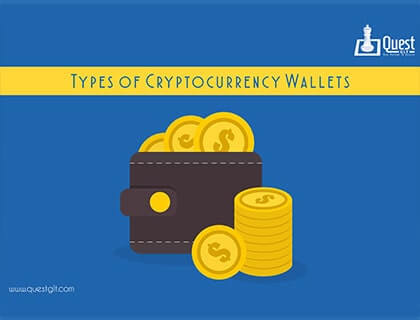
All of us well versed with the concept of digital money and cryptocurrencies. Now let us dig into the wallets that contain them.
Broadly, there are two categories of wallets namely, hot and cold wallets.
Hot Wallet – They are connected to the internet and function online. They possess higher breach risks but are more user-friendly.
Cold Wallet –Maintained offline and act as a storage unit. Similar to our physical purses an are more secure and they face fewer break-in threats.
When a company or organization owns a crypto-wallet, they use Multisigwallets that contain the signatures of multiple parties who can access the wallet. Once all the parties sign, the wallet can be used.
Usually wallets hold a single type of currency but then few wallets have Multi-Currency maintainence.For example- Exodus, a wallet that contains Bitcoin, Ethereum, Dash and many more cryptocurrencies. Although we cannot directly convert one type of currency to another, a feature called Shape Shift can help us to achieve the same.
Various types of Cryptocurrency wallets are :
-
Online Wallets :
These wallets can only be accessed with the use of the internet. Similar to hot wallets, but all online wallets are not hot wallets. Let us traverse the pros and cons associated with this wallet :
-
Speed – It performs transactions at a very fast pace and so we have quick and direct access to it.
-
Versatility – These wallets can store different types of cryptocurrencies altogether and allow transfers between them.
-
Access – It can be accessed online without any pre-installed software. Sometimes in the form of mobile apps as well.
-
Eligibility – Best suited for small amounts of currency. Storing large amount of money can be risky.
-
Security – They are not considered very secure as they are online from head to toe. Hacking, phishing, fraud malware are major challenges faced by these wallets.
Examples – Coins.ph and GreenAddress.
-
Mobile Wallets :
These wallets can be easily controlled and maintained by our mobiles and provide more features than web wallets. Characteristics :
-
User-friendly – Easier to use and access. As we always have our smartphones in our pockets, transactions can be made regularly.
-
New additions – Provides scanning through QR code and Tor network for security.
-
Level of security – It is very low in this case as mobile phones are highly vulnerable to theft and also online hazards like viruses and malware.
Examples – CoPay and Jaxx.
-
Desktop Wallets :
These wallets can be operated through our personal computers and laptops both with or without the internet connection. Features :
-
Capacity – It can store large amount of data at a time without losing any amount.
-
Secure – These are very secure wallets especially when never connected to any internet connection as it does not require any primary key and involvement of a third party.
-
Backup – They should be performed regularly, as if the data is completely online, any dysfunctioning in the system can swipe of the data entirely.
Examples –BitcoinCore and Armory.
-
Hardware Wallets :
They stand somewhere in the middle of the sea between online and mobile wallets and paper wallets. Not very easy to use yet have a decent amount of popularity. Key features :
-
Security – By far, these are the most strong wallets in terms of security.
-
Duration – They are long term wallets and can be kept safely for long.
-
Usability – Not very easy to use, can be a headache to beginners.
-
Availability – Mostly unavailable as they are sold out as soon as they enter the market.
Examples – Trezor and KeepKey
-
Paper Wallets :
These used to be very popular col wallets until Hardware wallets came into play. Now their existence is almost bleak. Points to be noted :
-
Security – Very secure as it is safe from virtual threats and hackers.
-
Work – Very tiresome if you want to move your cryptocurrency around as it passes through numerous processes.













